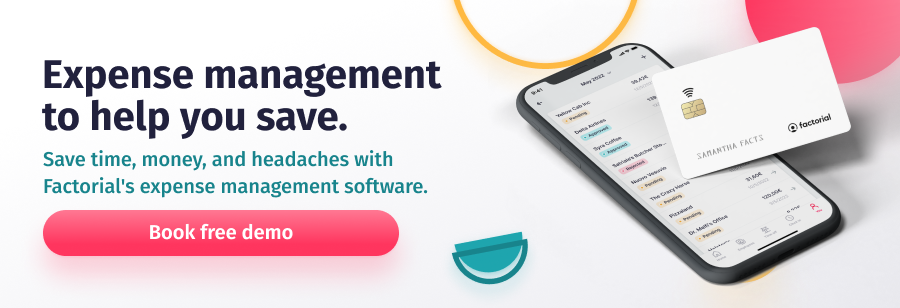On-demand pay is a financial arrangement that allows employees to access money that they have already earned but have not yet been paid for. The payroll cycle does not change, but employees can receive part of their salary before the end of the current cycle.
Companies implementing on-demand pay can use different models, payment methods and providers, but the principle is the same: employees can access the money they have earned as they need it (on demand) rather than waiting for payday.
You may also hear on-demand pay referred to as earned wage access.
How Does On-Demand Pay Work?
On-demand pay works differently depending on how a company wants to run the scheme and which service providers they use. There are three different types of on-demand pay that an organisation can offer:
- Earned wage access: the ability to access some or all of the wages earned so far in the pay cycle
- Instant pay: payment immediately following a shift
- Same-day pay: payment on the same day that the employee has worked
What Are The Benefits Of On-demand Pay?
In rapidly evolving workplaces, on-demand pay helps reduce employees’ financial stress and is an essential way of supporting well-being in the workplace. There are several benefits for employees and employers:
Employee Benefits
- Avoid fees: the ability to access earned wages before payday can help employees make payments on time and avoid any fees that are charged for late payments.
- Avoid payday loans: similar to avoiding late fees, access to wages ahead of payday supports employees in avoiding payday loans, which usually have high interest rates and can trap people in a cycle of debt.
- Help with unexpected expenses: on-demand pay means that employees can cover significant unforeseen expenses such as car breakdowns, issues in the home, or medical costs without taking out a high-interest loan or using a credit card.
- Feel supported: accessing your salary when you have earned it rather than waiting for payday means that employees feel more control over their finances, which can improve their mental health and engagement with their work.

Employer Benefits
- Improved productivity: on-demand pay helps the financial well-being of employees, which in turn helps to reduce their stress levels and encourages employees to be more engaged and productive in their work
- Enhances recruitment: companies that support their employees’ financial well-being are more likely to attract good-quality candidates because they know the company will help them.
- Improves retention rates: similarly, employees are more likely to stay working for a company that demonstrates their support for their employees by offering a flexible approach to pay
What Are The Difficulties With On-demand Pay?
While pay-on-demand has many benefits, it does come with some challenges:
- Cash flow: changing when you pay your employees impacts the amount of money you have available at different times, which can lead to issues with cash flow if it is not planned carefully.
- Extra fees: platforms that help companies facilitate on-demand pay can charge fees for each transaction. Hence, factoring in who covers these (the employer or the employee) is a significant consideration when implementing on-demand pay.
- Compliance: accessing wages earlier than payday can create complications regarding tax and other deductions; employees must still pay tax, so processes must be in place to ensure that legal requirements for paying tax are met.
- Potential for misuse: offering on-demand pay is a significant benefit for employees, but if used too much, it can create substantial reliance on accessing wages ahead of a scheduled payday. This reliance can lead to different financial stressors for employees.

Considerations For Implementing On-demand Pay
If you are thinking about implementing on-demand pay to support your employees and are looking at platforms to help you do so, it’s worth thinking about the following considerations:
- Costs: how much will the on-demand platform cost to run? How does this relate to the potential savings from reduced staff turnover when employees feel supported in their roles and stay longer?
- Fees: if there are transaction fees, who will cover them? Can you support your employees even more by covering the transaction cost (or a specific number of transactions)? Will you need to set a maximum limit for the number of times an employees access on-demand pay in a given period?
- Compliance: do you have the appropriate systems to meet legal requirements, such as tax calculations? Are you confident that your systems can handle more complicated payroll arrangements?
- Benefits: do you know that your staff will use and appreciate the ability to be paid at different times in the pay cycle? Will having on-demand pay as a financial option help the company attract and retain staff?
- Scalability: can the platform you are considering handle multiple requests from many employees if your business grows significantly? Once you have implemented on-demand pay, it is essential that the platform you use can meet the ongoing requirements of your workforce.
- Compatibility: does the platform or payment method you are considering work with your current payroll provider, or do you need to consider changing the payroll provider to offer on-demand pay?
- Data Privacy: are employee details and data completely secure within the on-demand platform you are considering?
- Communication: does the company have the capacity to implement on-demand with a strong communication plan to ensure that employees understand how to use it responsibly and not become overly reliant on it?
- Ethics: are there hidden costs for employees who use on-demand pay, and do these potentially create financial dependence similar to payday loans?


